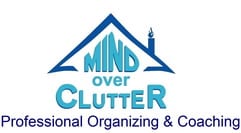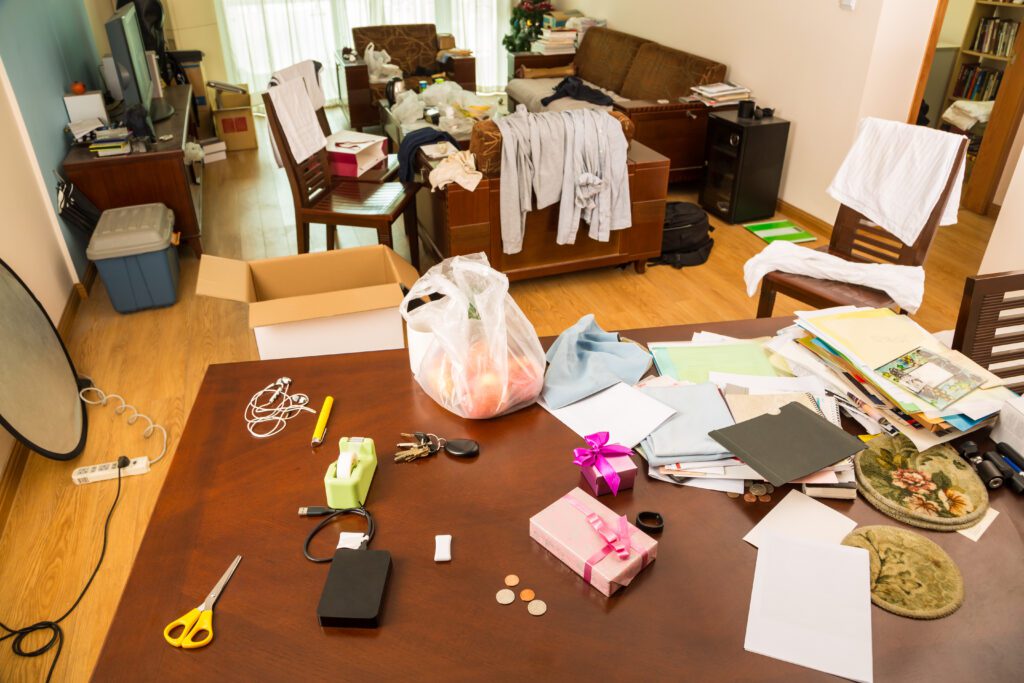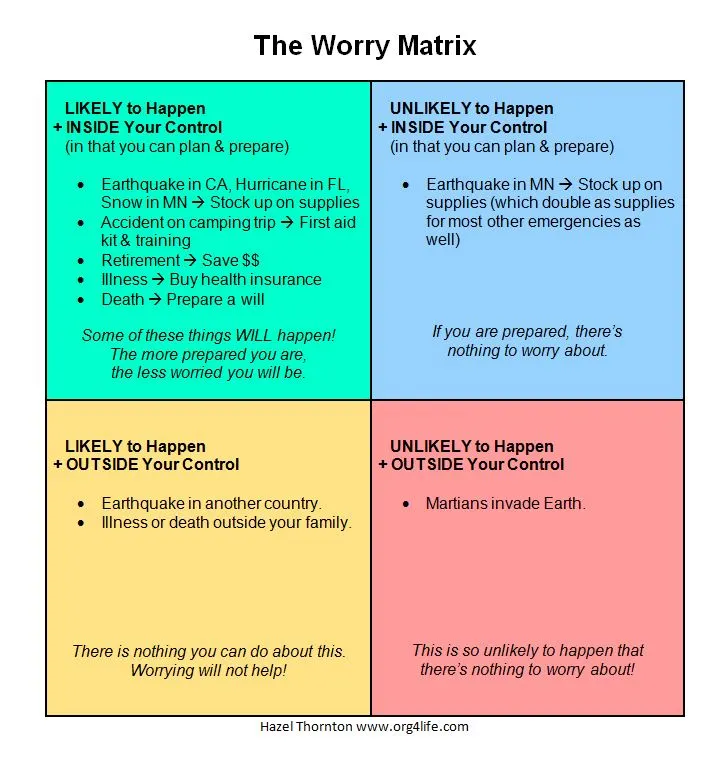4 Ways to Quickly Declutter Your Mind
We usually think of clutter as physical. It’s all that “stuff” you keep promising yourself you’ll clean up. Left alone, it seems to multiply on its own. Where you just had a few things out of place and distracting you a few days ago, now there are more.
Clutter is like that. A crowded, messy area magically attracts other items that don’t need to be there. While you may think this isn’t a big deal, it can be. Aside from the danger that substantial clutter provides (it can be a fire hazard, you may trip over it, etc.), any amount can be distracting. This kills your focus and concentration.
Maybe you don’t have much physical clutter in your environment. You are exceptionally neat and organized. If that’s the case, good for you. Don’t forget that clutter can also exist in your mind. Having too many unnecessary things in your head at once can keep you from focusing on the things that matter.
Here are four simple ways to de-clutter your mind. They go to work immediately, removing thoughts, obsessions, and other mental messes so you enjoy less stress and anxiety and better mental wellness.
1 – Divorce Yourself from Drama
This might mean saying goodbye to some people in your life. If they don’t provide more positives than negatives, their drama might not be worthwhile. Being around a dramatic individual regularly fills your head with unnecessary distractions.
The issues that the drama queens in your life are constantly dealing with become your issues to some extent. Ditch the drama. Say no to issues and individuals you don’t have to deal with. If the drama isn’t yours, you shouldn’t have to put up with it.
2 – Stop Living in the Past and Worrying about the Future
Well, maybe you can worry about the future just a little bit. It makes a lot of sense to plan your life. If not, you’re letting chance, other people, and circumstances decide how your life will go.
You probably know what we’re talking about here. It doesn’t make any sense to obsess over things in your past. They’re gone, and you can’t change them. Use any lessons learned to move on with more information.
As far as the future goes, constantly worrying about it won’t do you any good. This clogs up your brain and leaves no space for your mental machinery to deal with your life. Read more about how worrying is a form of clutter.
3 – If It Runs on Electricity, Spend Less Time with It
From when some people wake up until they go to bed, they are bathing in digital distractions. Constantly exposing yourself to your phone and tablet, television, laptop, and all the consumer electronics you encounter at work and play can overload your brain and fill it with mind-numbing clutter.
4 – Brain dump
Try a brain dump to help clear your mind. Take a piece of paper or open up a document and write down everything you need to remember to do. If you want you can categorize daily tasks, weekly tasks, monthly tasks and yearly tasks.
Record your workouts, household tasks, birthdays, anniversaries, work schedules, home maintenance, travel, meetings, entertainment, bill payments, financial commitments, health appointments etc. From your lists start to schedule things into your agenda. You no longer need to keep them in your mind. This makes space for your important goals and finishing tasks on time.
These are things you can do right now, this very minute. When you do, you immediately start clearing out your mental storage unit. The benefits are less stress, more focus, and better mental health; you might even find yourself sleeping better at night.
What do you do to help declutter your mind? Let me know. Post it in the comments.
 Julie Stobbe is the 2024-2025 winner of the Harold Taylor Award for outstanding contributions to the organizing industry and Professional Organizers in Canada. As a Trained Professional Organizer and Lifestyle Organizing Coach, she brings happiness to homes and organization to offices, coaching you virtually using Zoom. She has been working with clients since 2006 to provide customized organizing solutions to suit their individual needs and situations. She uses her love of teaching to reduce clutter, in your home, office, mind and time. She guides, mentors and supports you to be accountable for your time, complete projects and reach your goals. If you’re in a difficult transition Julie can coach you to break-free of emotional clutter constraining you from living life on your terms. Online courses are available to help instruct, coach and support your organizing projects. Get started by downloading Tips for Reorganizing 9 Rooms.
Julie Stobbe is the 2024-2025 winner of the Harold Taylor Award for outstanding contributions to the organizing industry and Professional Organizers in Canada. As a Trained Professional Organizer and Lifestyle Organizing Coach, she brings happiness to homes and organization to offices, coaching you virtually using Zoom. She has been working with clients since 2006 to provide customized organizing solutions to suit their individual needs and situations. She uses her love of teaching to reduce clutter, in your home, office, mind and time. She guides, mentors and supports you to be accountable for your time, complete projects and reach your goals. If you’re in a difficult transition Julie can coach you to break-free of emotional clutter constraining you from living life on your terms. Online courses are available to help instruct, coach and support your organizing projects. Get started by downloading Tips for Reorganizing 9 Rooms.
Contact her at julie@mindoverclutter.ca





What a fabulous post Julie! I find the mind piece is a lot of what keeps clients from moving forward with adownsize move. It just seems too overwhelming for them to to think about. I think mindset is the place to start.
Yes Nancy I agree in downsizing the mindset is where to begin. Sometimes you can be practical, there isn’t enough space for everything, mindset your moving on and your things need to move onto a better home, emotional how are these things from your past helping you to have the future you want. It is very complicated.
Physical clutter is easier to deal with because it’s tangible. The clutter that lives in our minds is much harder to remove. It’s easy to say don’t worry about the past – however, the past informs our brain. Our brains store experiences and use them to predict how things will go in the future. I always recommend doing the Brain dump. Putting things down on paper – physically writing them down can help take the worries and clutter out of our minds – placing them somewhere else.
Yes I agree, doing a brain dump is very helpful. People stop trying to remember everything and stop worrying about what they have forgotten. Thansk for sharing.
Your strategies for helping with mind clutter are terrific! I especially love Hazel’s “Worry Matrix.” I read a stats about worry that say somewhere between 85-99% of the things we worry about never happen. Those are sobering numbers.
All worry isn’t bad. As you pointed out, it can help us prepare or take control over things that will likely happen. And having more control or feeling better prepared can mitigate some of that worry and mind clutter.
My uncle Lew says, “Let’s leave worry as a last resort.” When I’m going down that rabbit hole, I think of those words, which helps me stop worrying.
For me, when thoughts are whirling around, I like to journal. I let my pen do the ‘talking,’ as I free-flow what’s happening within. There is a calming effect that pen to paper without edits allows. It always helps.
Thanks for sharing about the value of journaling in calming our minds. I sometimes forget to mention it because i don’t like journaling although I do talk to myself to get over the mind clutter. Perhaps I journal out loud. lol
You are so right about all of these tactics, and what’s more, I find that with many of my clients, it’s actually internalized mental clutter that prevents them from handling their external, tangible clutter.
You’ve made solid points about how to anticipate and weigh the relative likelihood and control involved in anticipated situations, and I love that you used Hazel’s fabulous Worry Matrix to make your point. While I don’t worry about earthquakes, I do worry about things over which I have little control and/or ability to prepare (though not Martian attacks) and I think we’d all be better off hewing to these guidelines. As for obsessing about the past, I doubt (for most people, at least), there’s anything short of therapy that will conquer that; if willpower could do it, more people would be able to do so.
Bravo on point #3; it’s difficult (especially because we have to find things we like, or at least are comforted by, as much) but our electronics don’t generally improve our moods long-term. (If they did, as Dick Cavett noted, comedy would break out in the streets!)
Most of all, I applaud the efficacy of the brain dump. It’s amazing how a scary thought can race around the insides of our heads over and over, but writing it down somehow gives it less power to control us. While (unlike Linda, above), I don’t journal, brain dumping my worries in an email almost always helps me let go of the most stressful aspects.
Nifty post!
Thank you for you comments. I do love Hazel’s worry matrix because a “picture says a 1000 word”. It helps to visually see the importance or lack of importance of a situation. If it was easy to evaluate our thoughts and put them in the “right box” life would be easlier. So many ideas effect how we think about each situation so it is not easy to remove the clutter from our brains.
Oh wow, so many amazing gems in this post. I truly believe our external space reflects our internal space. They both impact each other fully. Decluttering your mind is just as important as decluttering your outer space as well.
Thanks for your comments. It can be difficult to know if you should declutter your mind first or do your space first.